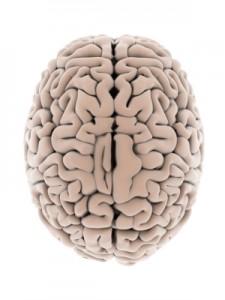12 Ways Yoga Meditation Helps Nourish The Body, Brain and Mind
 An easy, low cost, natural practice can help us boost our brain power, be healthier and more spiritually attuned as we age, and improve our quality of life and happiness. It could also reduce some of the staggering health care costs seen today.
An easy, low cost, natural practice can help us boost our brain power, be healthier and more spiritually attuned as we age, and improve our quality of life and happiness. It could also reduce some of the staggering health care costs seen today.
Curious about what that practice is?
Recently The Alzheimer’s Research and Prevention Foundation (ARPF), of which I’m the founding president and medical director, presented a summary of our innovative yoga meditation research at the Alzheimer’s Association International Conference in Boston.
For the past 12 years, the ARPF has organized, helped design, and fund innovative research on a simple 12-minute singing yoga meditation called Kirtan Kriya (KK). This work has specifically focused on reducing risk factors for Alzheimer’s disease and the enhancement of total brain fitness. To determine the benefits, these studies included well-recognized methods to measure aspects of brain health and brain scans such as SPECT and fMRI, as well as sophisticated memory and blood tests.
What are the results so far? What are the documented body, brain and mind benefits from this type of yoga meditation?
1. Increased telomerase: Telomerase is the enzyme that controls the length of your telomeres, the cap of your DNA. Longer telomeres equal better health. Shorter telomeres equal Alzheimer’s disease and accelerated aging and a shortened life. An increase of 44 percent in telomerase was shown in a study on highly stressed caregivers doing KK for 12 minutes a day for eight weeks. To my knowledge, this is the largest increase in telomerase ever seen.
2. Decrease in bad genes: 39 stressed caregivers utilizing KK for 12 weeks had what is known as down regulation of inflammatory genes, which signifies a reduction in the activity of the genes that cause inflammation. This is important because inflammation is a hallmark of many illnesses, including Alzheimer’s.
3. Improvement of good genes including those that boost your immune system.
4. Improved Sleep: Sleep is critically important for optimal brain and body health. Disrupted sleep is a risk factor for Alzheimer’s. KK can help improve sleep.
5. Enhanced Brain Blood Flow (also called cerebral blood flow or CBF): Patients with cognitive decline and stressed caregivers had increased CBF in critically important areas of their brain, including those well known to influence attention, concentration, focus, memory (hippocampus), depression, trauma and resiliency.
6. Increased Healthy Brain Size: Compared to beginners, long-term meditators have a larger and healthier looking brain.
7. Improved Brain Chemistry: It is well known that people who have a decrease in brain energy and function have a reduction in certain brain chemicals called neurotransmitters. Hence, the development of drugs that tried to increase these transmitters. Unfortunately, they are not very effective. KK, however, seems to help increase neurotransmitters in a natural way and improve communication between brain cells, thus enhancing brain and memory function.
8. Improved Memory: People with memory loss improved on important memory tests. In a study of stressed caregivers, the KK practitioners had a better memory after KK meditation training.
9. Reduced Stress: Studies show cognitive decline caused by both acute and chronic stress secondary to the hormone cortisol’s brain cell-killing effect in the memory center of your brain, the hippocampus. Meditation reduces stress and lowers cortisol levels and, as seen above, can help reverse memory loss.
10. Less depression: 65 percent of subjects showed improvement on Depression Scales. Depression may be a risk factor for cognitive decline.
11. Clarity of Purpose: Meditators discover clarity of purpose and other aspects of psychological well-being such as acceptance, personal growth, and positive relationships. This has been shown to improve overall health and lower Alzheimer’s risk.
12. Spiritual Well-Being: Practicing KK creates peace of mind and spiritual well-being, which is something we all can use more of in today’s incredibly hectic and fast paced world.
In summary, studies on Kirtan Kriya singing yoga meditation, a simple 12-minute practice, reveal many positive health benefits for our minds, brains, and bodies, including a surprisingly profound effect all the way down to the level of our DNA.
To learn more, I invite SharpBrains readers to join our 20th Anniversary webinar, on October 7th with Mariel Hemingway, Lori La Bey, and me.
In the meantime I wish you all health, happiness, and a soaring spirit.
Related articles:
- The Future of Preventive Brain Medicine: Breaking Down the Cognition & Alzheimer’s Disease Alphabet Soup
- From Anti-Alzheimer’s “Magic Bullets” to True Brain Health
 – Dharma Singh Khalsa, M.D., is the President of the Alzheimer’s Research and Prevention Foundation (ARPF), a 501(c)(3) non-profit organization spearheading dynamic research on the use of meditation and memory loss prevention and reversal.
– Dharma Singh Khalsa, M.D., is the President of the Alzheimer’s Research and Prevention Foundation (ARPF), a 501(c)(3) non-profit organization spearheading dynamic research on the use of meditation and memory loss prevention and reversal.



Wow, I had no idea that yoga meditation could help reduce stress and lower depression. My fiance and I are stressing out a lot about our wedding. She also has depression so I’ll talk to her about trying some yoga meditation to relieve ourselves.